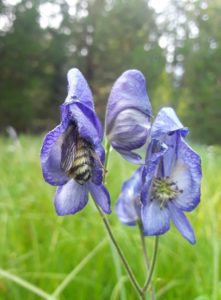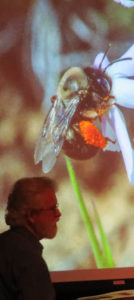Bumble Bee Field Trip
June 22, 2019 | with Rich Hatfield

OHA’s bumble bee field trip on June 22, 2019 provided community members with an opportunity to learn about the bumble bee species in our area, their importance to our ecosystem, as well as ways we can help conserve them. In an effort to learn more about bumble bees to improve evidence-based bumble bee conservation guidance, the Xerces Society for Invertebrate Conservation, in partnership with the Washington Department of Fish and Wildlife, Idaho Department of Fish and Game, and the Oregon Bee Project, has launched the Pacific Northwest Bumble Bee Atlas. On a trip around the Okanogan Highlands, Rich Hatfield, Xerces Society conservation biologist, shared information about the Atlas Project, how to participate, and the value that the project will have to our area, both locally, and more regionally. The group conducted a point survey at Lost Lake to help determine the number of bumble bee species living there, along with a rapid habitat survey. More about the survey: www.pnwbumblebeeatlas.org/point-surveys.html
